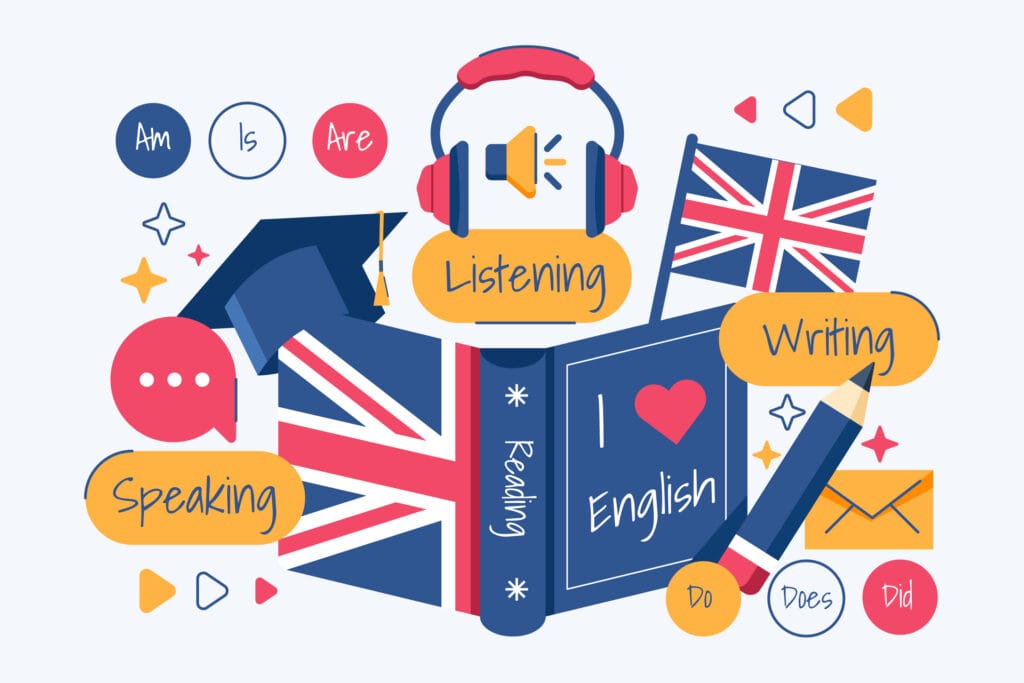In Summary
- English is used in South Africa not only because many people can speak it but mainly because it is used well in law, government, education, and media compared to anywhere else in Africa.
- Nigeria, Kenya, Ghana, and Uganda, which have ties to English colonialism, keep leading the charts, while Morocco, Tunisia, and Algeria are also rising thanks to the increasing importance of English in tech, tourism, and education fields.
- In these North African countries, Algeria, Tunisia, and Morocco, youth are embracing English, which is seen most in the business world, tourism, tech-related education, and more.
Deep Dive!
African countries do not only speak English Proficiently but utilize it for trading, communicating, governance, and learning. Because there are thousands of languages in Africa, English has grown to act as a crucial link between governments, global organizations, African youth, and global employment.
The latest EF English Proficiency Index has shown us the African countries with large numbers of English speakers as well as those where English is spoken fluently. This article looks at countries where English is spoken by many and with a good level of skill, joining both the number of speakers and their ability.
10. Algeria
English is now beginning to take a more important role in Algeria as the French slowly stepped back. French is still the main foreign language, but English is becoming more widely spoken, mainly by young people and professionals. Universities in Algiers and Oran are creating more English programs, and companies involved in tech and tourism are using English more often for dealing with international partners. Algeria got a score of 471 in the EF EPI 2024 which ranks it tenth among African countries for English proficiency.
9. Morocco
How Moroccans use English is adapting very fast. For years, Arabic and French were important languages, so many people spoke them, but now the youth are choosing something different. English is now introduced at a younger age in private schools, and this is mainly because of the growing influence of tourism, technology, and global business. The EF EPI for Morocco is 479 which demonstrates that English is improving in both Casablanca and Marrakech.
8. Tanzania
English continues to hold an important position in secondary and tertiary education even though Swahili is the national language in Tanzania. When students go to university, they often start taking courses in English in Dar es Salaam, Arusha, and Dodoma. With a score of 487 according to the EF EPI 2024, Tanzania indicates that educated and urban people usually use English for official and business-related purposes.
7. Tunisia
Tunisia is gaining more English usage, most noticeably among its educated and urban community. Since French has long been dominant here, now, however, English is steadily gaining ground thanks to online education, remote jobs, and global teamwork. Tunisia got a proficiency score of 496 on the EF EPI 2024, reflecting that it is slowly but surely moving towards different language choices.
6. Ethiopia
Ethiopia has been using English in secondary schools and universities for a very long time. Amharic is Ethiopia’s national language, but plenty of its citizens finish schooling with a good understanding of English, mainly the ones in Addis Ababa and educational groups. The country reports a score of 498 and comes in sixth place in Africa which is stellar for a nation so diverse linguistically.
5. Uganda
The use of English was established early in business, government, and schools in Uganda. People from courts, leading newspapers, and university classes use English, which is necessary as much as it is official. Kampala and other cities use it routinely in public debates. An average score of 518 in Africa means Uganda is fifth in the region because of the strong presence of English in its education and government.
4. Ghana
English-speaking countries in West Africa are led by Ghana. The official language in Ghana is English, which is used for law, education, and ruling. One can access radio, TV, and newspapers around Ghana almost entirely in English. Thanks to the heavy use of English in all areas, the country received an EF EPI value of 534. English is widely spoken in Accra, Kumasi, and Cape Coast, mainly by young people and professionals.
3. Nigeria
Nigeria is Africa’s most populated country and this gives it the greatest number of people using English. The list is not just to measure those speaking English, it measures those who speak it effectively. Nigeria received a score of 557 on the EF EPI which means it is positioned third on the continent. Official business, government, and education in Nigeria are all done in English. Still, more than 500 different languages are spoken in Nigeria. Nigerian Pidgin which mixes English and native African languages, is often used by most Nigerians in everyday conversations and arts. Because Nigerian people speak so many languages, English is shaped differently there.
2. Kenya
Second place goes to Kenya, which has an EF EPI score of 581 because people there are very effective at using English in schools, media, and daily conversations. In schools, people are taught in English, which is also common in political discussions, news, and business. A lot of English-speaking tech and finance professionals live and work in Nairobi. Kenya is one of Africa’s most connected countries, mainly because Swahili and English are spoken there.
1. South Africa
South Africa scores the highest in Africa for English proficiency, getting 594 on the EF EPI 2024. Although South Africa has 11 official languages, English is most commonly used in business, education, the legal system, and media. In places like the University of Cape Town and Wits, students can attend English-taught classes, and urban hubs like Johannesburg, Cape Town, and Durban use English as their main language. This reliance on English both by groups and organizations and their high-quality education in English, distinguishes South Africa from others.
https://www.africanexponent.com/top-10-african-countries-with-the-best-english-proficiency-and-speakers-in-2025/


